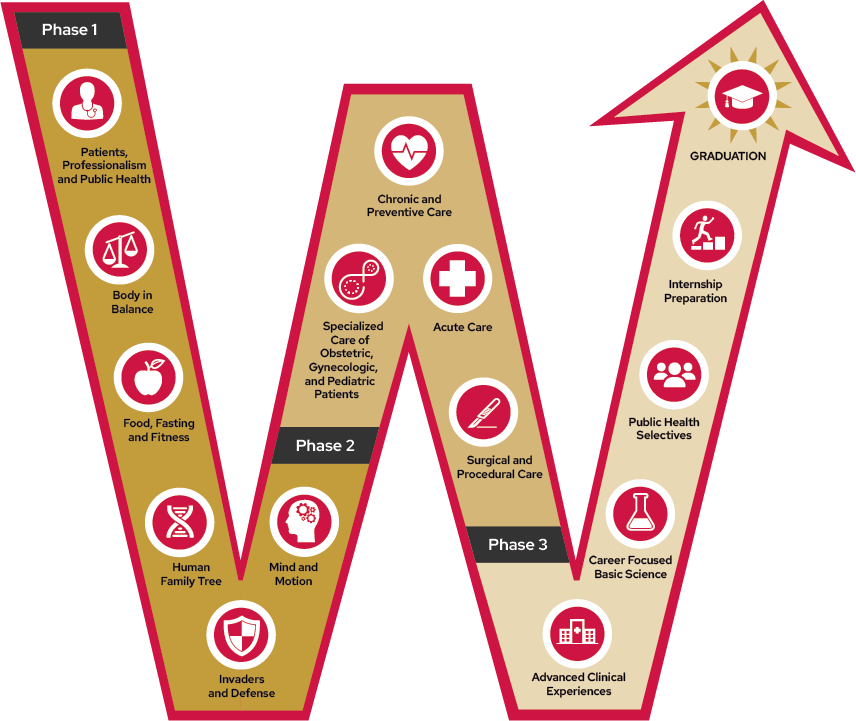
MD ForWard Curriculum
The ForWard Curriculum is an innovative model and vision for the Doctor of Medicine (MD) program at the University of Wisconsin School of Medicine and Public Health. Building on a long tradition of educational excellence, our MD program produces top graduates year after year.
Revolutionary changes in health care demand a different type of physician. The ForWard Curriculum replaces the traditional model of medical education — two years of basic science followed by two years of clinical experiences — with a three-phase model that fully integrates basic, public health and clinical sciences throughout our medical students’ education.
ForWard Curriculum Key Features

- Competency-based curriculum requiring collaboration of medical educators across all years of the curriculum
- Deliberate developmental sequencing of 10 important content areas or “threads” across the curriculum
- Intensive longitudinal coaching by some of our very best teaching faculty to assist students in their professional skill development
- High-quality interprofessional and team-based educational opportunities including the successful small group-based learning that is a primary feature of Phase 1 called Patient-Centered Education (PaCE) Cases
- Longitudinal public health and system-based practice opportunities with special emphasis on “hands-on” application of knowledge in clinical and community settings
- Earlier entry into clinical clerkships to facilitate career exploration and competitiveness for residency selection
The Doctor of Medicine (MD) curriculum emphasizes team-based learning with a special emphasis on the hands-on application of knowledge in clinical and community settings.
Students in the regular MD curriculum are encouraged to consider research as an integral part of their medical training and future careers.